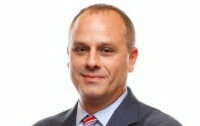The Volcker Rule section of the Dodd-Frank Act has yet to be formally implemented, yet its potential impact on the financial services industry was the subject of discussion during a recent hearing of the Senate Subcommittee on Financial Institutions and Consumer Protection. Included in the discussion was input from the rule's namesake, former Federal Reserve Chairman Paul Volcker, who praised the proposed rule as an important step in dealing with risk while questioning whether it would go far enough to achieve its goals.
‘The newly enacted prohibitions on proprietary trading and strong limits on sponsorship of hedge and equity funds should be much more significant,’ he said, adding that the Volcker Rule was not meant to demonize the ‘important legitimate role for derivatives and for trading. The question is whether those activities have been extended well beyond their economic utility, risking rather than promoting economic growth and efficient allocation of capital.’
{openx:114}
Volcker called for reducing the risk of failure of ‘large, interconnected firms,’ either through shrinking their size or limiting their interconnections and/or activities. He also called for a ‘prompt and orderly financial resolution process’ for firms that have failed or are at the cusp of failure, as well as a consistent approach ‘among major financial centers in which the failing institutions have critical operations.’ However, he acknowledged that this task will not be easily accomplished.
‘Various approaches are possible,’ Volcker said. ‘Each is difficult intellectually, operationally and politically, but progress in these areas is the key to effective and lasting financial reform.’
Also providing input was Thomas M. Hoenig, director of the Federal Deposit Insurance Corp. (FDIC) and former president and CEO of the Federal Reserve Bank of Kansas City, who noted there was a possible unintended effect of the Volcker Rule.
{openx:115}
‘The benefits of prohibiting banks from engaging in high-risk activities outside of their core business would be limited if those activities continue to threaten stability by mostly migrating to the 'shadow' banking system,’ he said. ‘Shadow banks are financial companies not subject to prudential supervision and regulation that use short-term or near-demandable debt to fund longer-term assets. In other words, shadow banks essentially perform the same critical, core functions as traditional banks, but without an explicit safety net or prudential regulation. As a result, the shadow banking system is susceptible to disruptions that threaten financial and economic stability and lead to additional implicit government guarantees and the associated moral hazard to take greater risks.’
To mitigate this risk, Hoenig proposed further restricting bank activities to loan origination and ‘other activities that do not significantly impede the market, bank management, and regulators in assessing, monitoring, and/or controlling bank risk-taking.’
‘Critics of restricting activities also question how we would go about divesting the prohibited activities,’ Hoenig stated. ‘The divestitures that were required by the Glass-Steagall Act and the breakup of AT&T in the 1980s suggest that divestitures can be conducted in an orderly manner in a relatively short period of time.’
Randall S. Kroszner, former governor of the Federal Reserve System and Norman R. Bobins Professor of Economics at the University of Chicago Booth School of Business, weighed in during the hearing by arguing the Volcker Rule's limits on commercial bank activities in proprietary trading, private equity, and hedge funds missed a major point in dealing with financial risk.
{OPENADS=zone=52}
‘First, natural hedging activities of banks could be curtailed,’ he said. ‘Second, the role that banks play as market makers in key global markets, such as those for government securities, could be reduced or eliminated. The unintended consequence could be to reduce liquidity and increase bid-ask spreads.
‘A number of international regulators, in addition to the banks, have raised the concern that the rule may make important markets less liquid and less stable,’ he added. ‘It is difficult to find systematic evidence from the recent crisis that involvement in proprietary trading increased the risk of failure. In the U.S., the major banks that collapsed did so primarily because of high exposure to mortgages, not due to proprietary trading.’
The hearing also produced contrasting testimony from a pair of financial services institutions. James E. Roselle, executive vice president and associate general counsel at Chicago-based Northern Trust Corp., argued that the Volcker Act would impede the ability of many financial institutions to provide custody bank services.
‘If large numbers of sponsored or advised foreign funds become subject to the Volcker Rule, the custody banks will be prohibited from providing traditional operational extensions of credit and will need to satisfy onerous compliance requirements that in some cases may conflict with laws in certain non-U.S. jurisdictions,’ he said. ‘Such a sweeping approach is inconsistent with congressional intent as well as the findings and recommendations of the Financial Stability Oversight Committee in its study on the Volcker Rule.’
Roselle also said the Volcker Rule's proposed inclusion of foreign exchange swap-and-forward transactions within the proprietary trading prohibitions would ‘result in damage to a traditional and low-risk activity, with no offsetting benefit to the U.S. financial system.’ Furthermore, he considered the rule's compliance requirements to be ‘unduly burdensome’ and said they would result in banks' shouldering increased costs with ‘little or no offsetting benefit.’
However, Tom Frost, chairman emeritus of San Antonio, Texas-based Frost National Bank, had a decidedly different opinion of the Volcker Rule's possible impact.
{OPENADS=zone=53&float=right}
‘I support the FDIC as a protection for the depositor, but I want to suggest that this safety net apply only to banks which receive FDIC-insured deposits,’ he said. ‘I am convinced that offering this safety net to other financial institutions which provide services not deemed appropriate for deposit/loan commercial banking institutions is not sound public policy. The deposit facilities of financial institutions which provide primarily investment, hedging and speculative services should have no taxpayer safety net. These institutions should be governed by market forces with investors understanding what can be earned and what can be lost.
‘I would suggest that the two types of institutions have separate ownership, separate management, separate regulation,’ he added. ‘My conviction comes after seeing both systems, which were separate but now have been joined, create a situation which, in 2008, brought about the near catastrophe of collapse of the world financial systems. Following the path that we are on currently will not only provide opportunity for the same consequences to be repeated, but also mean the end of a banking system consisting of many providers.’
Phil Hall is the editor of MortgageOrb. He can be reached at hallp@mortgageorb.com.










